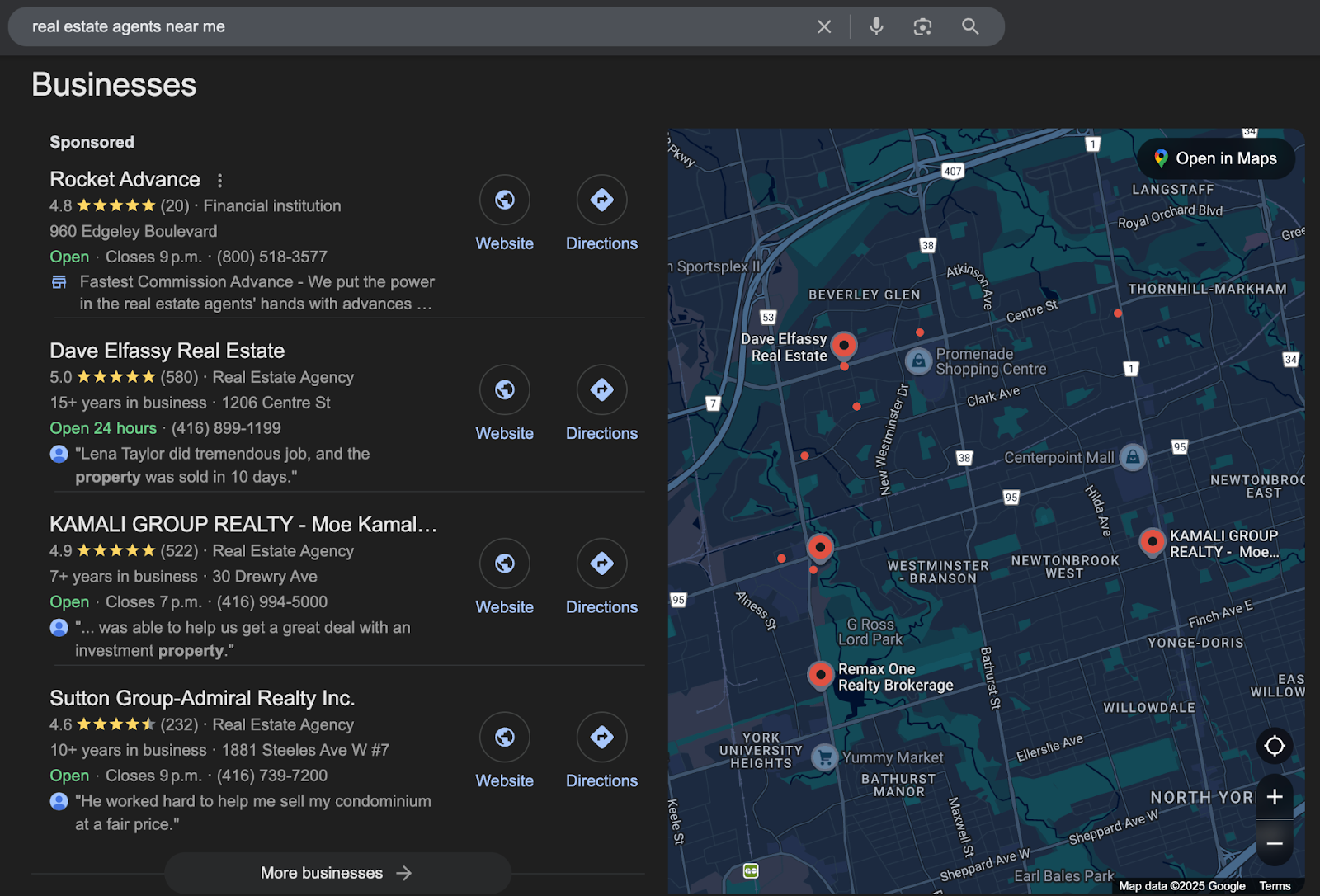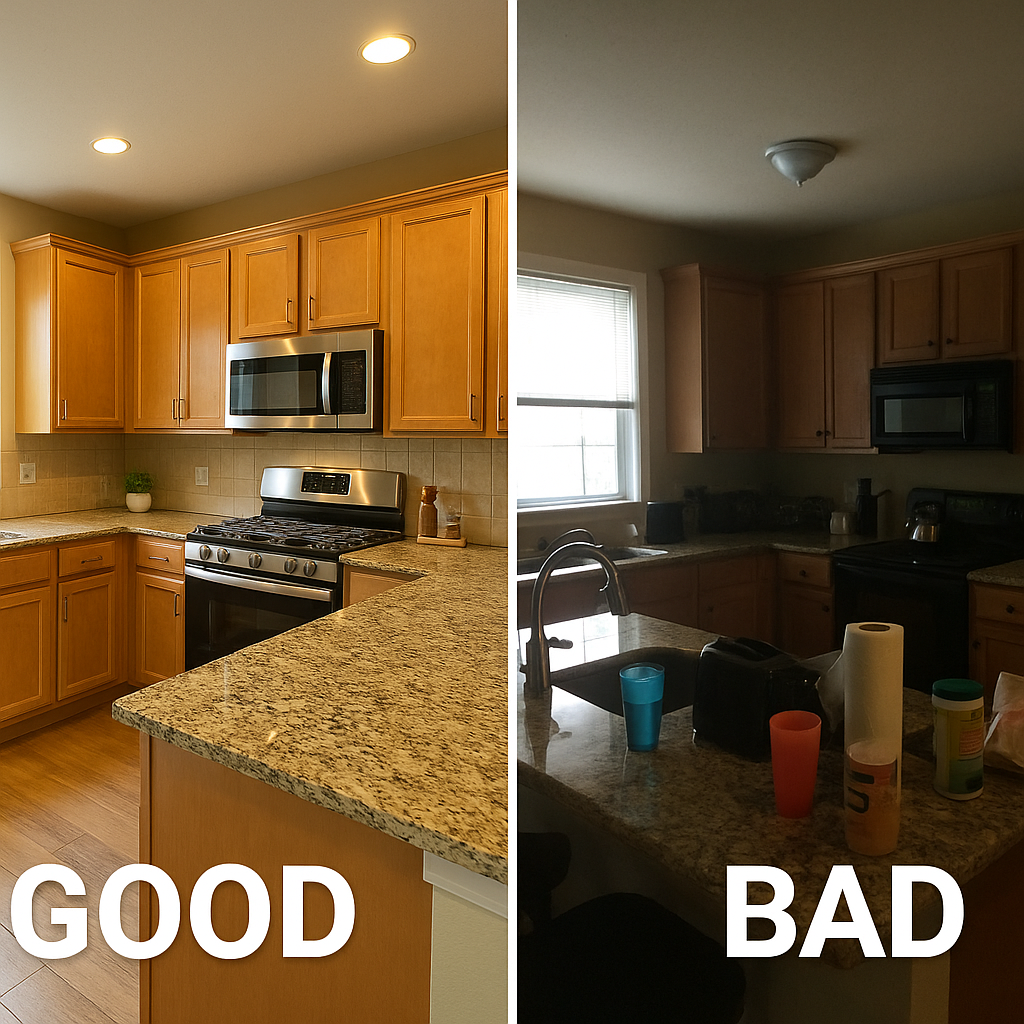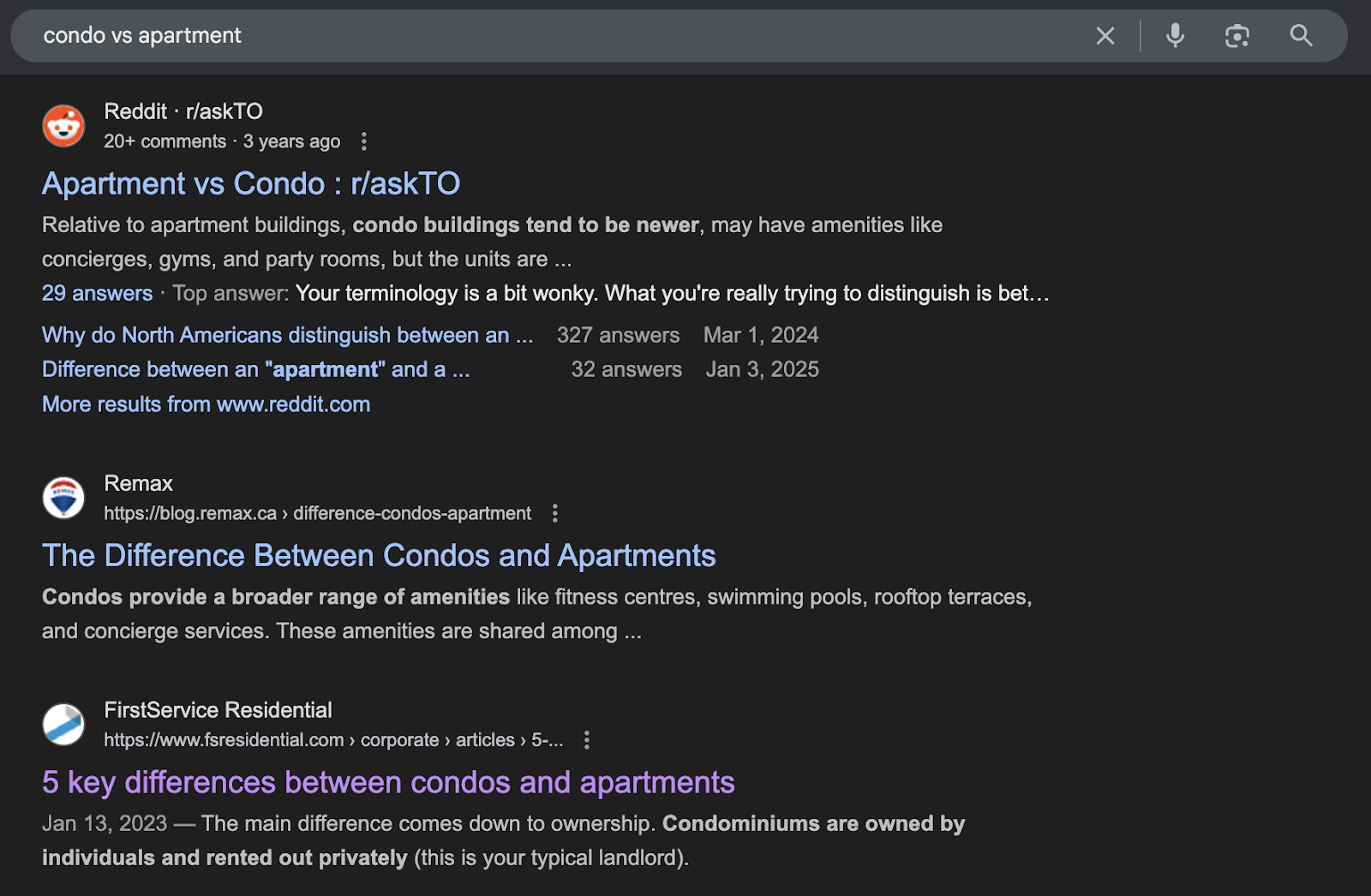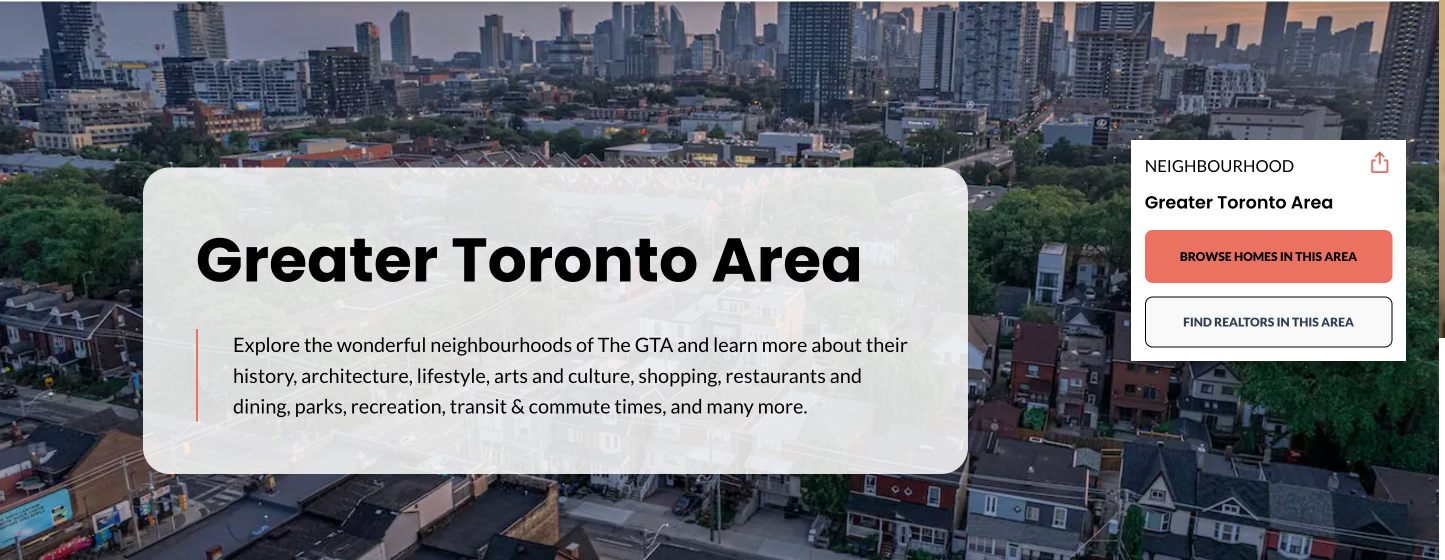
To stand out in a highly competitive space, more real estate professionals are turning to content marketing to attract clients instead of relying solely on traditional advertising. The goal of content marketing is to create helpful content to attract potential buyers and sellers.
By providing useful information during their research phase, you can establish early trust and position yourself as the local expert so when they’re ready to pull the trigger and find an agent you’re top of mind.
Content marketing involves creating valuable, helpful content, often in the form of written blogs, without directly pitching your services.
Instead of ads saying "Call me to buy your dream home," you create blog posts like:
Why is content marketing important?
In 2024 43% of buyers start their home search online, and all home buyers use the internet, at some point in their home purchasing journey, to search for a home.
Thus further demonstrates the importance of an online presence, as without one, you risk losing out on leads.
SEO (Search Engine Optimization) makes your website more attractive to search engines like Google. When someone searches "real estate agent in [your city]," SEO helps your website appear at the top of results instead of buried on page 10.
This is very important because your target audience is going to either click the first or second result. It's not normal behaviour to go to page 10 of Google and click a link.
Content marketing and SEO work together like a team, but they're not the same thing. SEO involves optimizing every part of your website, and content is just one of the tools that can be optimized to get more website traffic.
What does SEO involve?:

Key Tip: Google My Business profiles are one of the most important local SEO initiatives for your business. They allow you to appear for location based searches like "real estate agent in [your city]" or “real estate agent near me”
{{CTA}}
Blog content forms the foundation of your real estate content marketing strategy. It's where you can communicate your expertise to potential clients,
Why does long-form content matter?
Google has billions of pages to rank daily and will prioritize comprehensive resources that thoroughly answer searchers' questions over shallow, surface-level content. Long-form content, in the ballpark of 1500 - 2500 words, allows you to dive deep into topics and provide information that helps your audience make informed decisions.
Ask yourself this critical question: "Can I find this exact information easily through another Google search?" If the answer is yes, then what incentive does Google have to rank your content ahead of what's already established? You need to offer unique insights, local expertise, or a more complete perspective that doesn't exist elsewhere.
What are some examples of high-performing blog topics?
How can AI help with blog content creation?
AI tools can help generate blog post ideas, create initial outlines, and write first drafts of your content.
However, always personalize AI-generated content with your local market knowledge, fact-check all statistics and claims, and ensure the final piece reflects your unique expertise and voice. Just because AI generated content doesn't hurt Google Rankings doesn't mean it will help them either
Key Tip: Focus on long-tail keywords that match how people actually search. Instead of targeting broad terms like "real estate agent," focus on specific phrases like "best real estate agent for first-time buyers in Portland" or "how to sell a house fast in suburban Dallas."
While broader terms have more monthly searches, they have less specific search intent and more competition.
Email marketing keeps you connected with leads and past clients long after their initial website visit. It's your direct line to nurture relationships and stay top-of-mind when they're ready to get back into real estate.
The goal of a successful email marketing campaign is high open rates. This is done by using good subject line hooks and providing great value to your subscribers while not spamming their inbox aggressively.
What types of email campaigns generate the highest open rates?
Key Tip: Segment your email lists based on where people are in their real estate journey. This is important as it allows you to send highly personalized content that resonates with each group's specific needs.
Dig Deeper: A complete guide to email marketing in real estate
Social media platforms help you build community, showcase properties, and establish yourself as the local market expert. Each platform serves a unique purpose and attracts different demographics in your target market.
What type of content should you publish on each platform?
Key Tip: Visual content is crucial for property marketing. Great photos and videos can generate interest before potential buyers even visit.
Dig Deeper: A guide to social media marketing for real estate
Video content has become essential because it allows potential buyers to experience properties remotely and helps them connect with you personally before meeting face-to-face.
What types of videos generate the most engagement for real estate professionals?
Key Tip: You don't need expensive equipment to create professional-looking videos. A smartphone with good lighting and clear audio can produce excellent results.
Effective real estate copywriting focuses on understanding your audience's needs and motivations, then creating messages that address those specific concerns.
Instead of listing features like "3 bedrooms, 2 bathrooms," emphasize benefits such as "spacious family living with room for everyone."
Always answer "What's in it for me?" from your client's perspective.
Understanding your audience is the foundation of effective real estate copywriting. Different client types have vastly different motivations, concerns, and decision-making processes that should shape how you communicate with them.
What do different real estate audiences actually want?
How do you identify what your audience actually wants?
Gather audience insights by speaking to your clients and looking for patterns, as common concerns will arise. Ask questions like "What was your biggest concern when you started looking?" and "What information would have been most helpful?"
Use this data to create content that addresses real pain points rather than what you think they want to hear.
Instead of claiming you're "the best agent in town," demonstrate your value through specific examples and concrete results.
What are effective ways to show value?
AI tools can significantly improve your copywriting efficiency, but they should enhance your expertise, not replace it. Use AI for generating property descriptions, creating initial drafts of marketing materials, and researching comparable sales data, but always add your personal insights and local market knowledge.
The reason we emphasize using AI appropriately is because of its tendency to hallucinate facts and produce bland, generic content that lacks the personal touch.
Visual content is absolutely critical in real estate marketing copy because properties are inherently visual products.
What are best practices for real estate photography?

Key Tip: Maximize visual content across platforms. Create assets that work in multiple places such as social media, your website and listing presentation. This maximizes your time while maintaining consistent branding.
{{CASESTUDY}}
The best content ideas come from listening to your market, observing seasonal patterns, and documenting the questions clients ask you every day. Smart real estate professionals build idea generation into their daily routine rather than scrambling for topics when it's time to publish.
AI tools can generate dozens of content ideas in minutes, but the key is validating these ideas by checking what's already ranking in Google search results.
This two-step process ensures you're creating content that has search demand while finding gaps you can fill.
How do you use AI to generate content ideas?
Prompt ChatGPT or Claude with: "Generate 20 blog post ideas for a real estate agent in [your city] focusing on [buyer/seller/investor] concerns." Then ask for more specific angles: "What questions do first-time homebuyers have about [your neighborhood]?"
How do you validate AI-generated ideas through Google search?
For each AI-generated idea, do a quick Google search to see what shows up first. If you see Zillow or Realtor.com listings, people want to buy or sell, not learn, so skip those topics.
If you see blog posts and articles, people want information, which is perfect for your content. Look for articles that don't fully cover the topic where you can provide better, more complete information.
What does the validation process look like?
Query: "Condo Vs Apartment" shows a mix of informational content and forums. The strong ranking of the forum suggests that the other articles are not covering the topic well enough.

After a scan, you’ll notice that they don’t speak to the similarities between condos and apartments. Additionally, it doesn’t answer any of these potential follow up questions
These poorly covered topics are a goldmine of information that can help you both help your audience and stand out from the crowd.
Successful real estate content marketing creates comprehensive resources that serve immediate user needs.

Why is comprehensive neighborhood content valuable?
Most neighborhood information online comes from poorly maintained city websites or generic data sites. Wahi's detailed guides provide first-hand information that goes far beyond standard city help pages, filling a gap where few good resources exist for explaining what neighborhoods are actually like to live in.
How can you create effective neighborhood content?
Create a blog post that highlights local amenities, transportation options, school ratings, demographics, average home prices, and market trends for each location you serve. Take photos even with your iPhone to capture the authentic look of the place, as not everything is 4K in real life.

Why is this type of content valuable?
Rew's Home Inspection Checklist provides immediate, practical value that readers can use right away.
How can you create similar content?
Identify the processes your clients struggle with most such as preparing to sell, understanding closing costs, or navigating inspections then turn those into detailed, step-by-step checklists. Each checklist should outline what to do, how to do it, when to do it, and what to expect next. Create these as professional PDF downloads and gate them behind an email signup to capture leads from people actively going through these processes.
Content marketing attracts visitors to your website, but what happens when they arrive? Many potential clients browse your content, get the information they need, and leave without ever contacting you. This is where AI chatbots transform your content marketing efforts from passive information sharing into active lead generation.
Realty AI's chatbot provides 24/7 availability for lead capture and initial qualification, ensuring you never miss an opportunity when potential clients are ready to engage. Unlike traditional contact forms that require visitors to take a big step forward, chatbots create natural conversations that feel less intimidating and more helpful.
Don't let another potential client walk away because you weren't available to respond instantly. Madison's pricing is designed to pay for itself with just one additional deal per month.
Before you spend another dollar on marketing that doesn't convert, take 2 minutes to see how Madison turns your existing website traffic into a steady stream of qualified appointments.

Within just a few months, Realty AI helped Team Logue capture 15 high-quality leads, resulting in 3 new transactions worth over $3.3 million. This success generated an estimated $82,500–$95,000 in gross commission income (GCI).